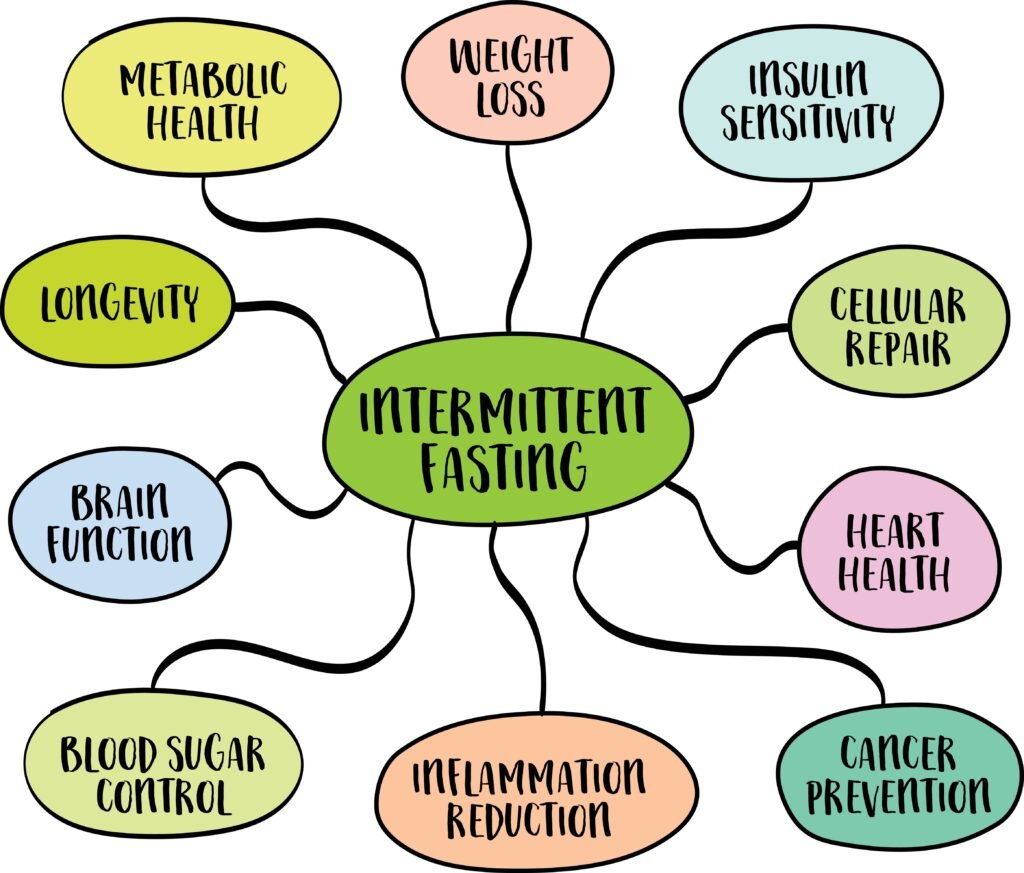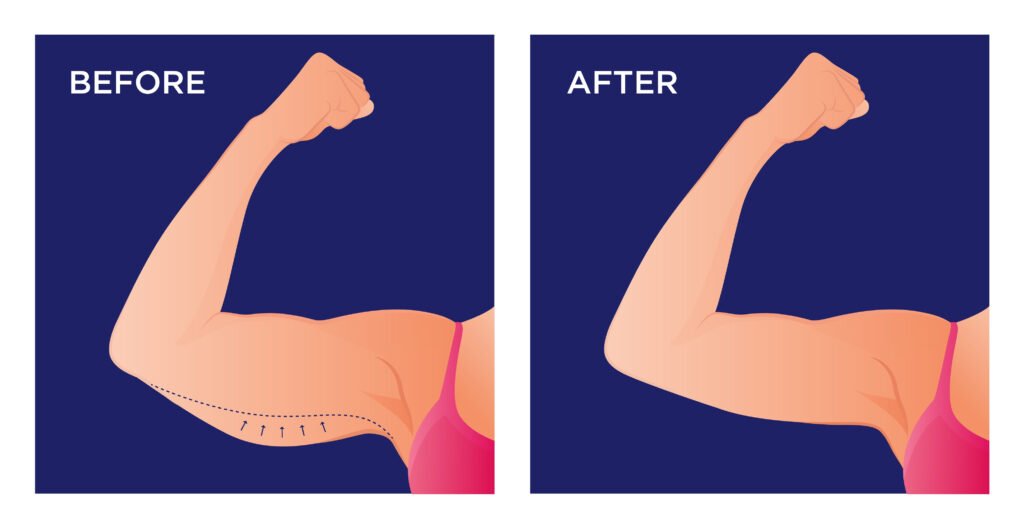Intermittent fasting (IF) is a popular way to manage weight and improve health.
Simply put, it means dividing your day into eating hours and fasting hours in a regular pattern.
Instead of eating three fixed meals a day, you give your body a break from constant digestion so it can “reset” itself.
Most people try intermittent fasting for weight loss,
but studies also show it can help balance blood sugar, improve cholesterol and blood pressure, and even boost brain health.
How Do You Do Intermittent Fasting?
There’s no single way to do IF. You can pick a method that best fits your lifestyle.

1. 16:8 Method
Fast for 16 hours and eat during an 8-hour window. Example: First meal at 11 AM, last meal at 7 PM, and only water or tea the rest of the time.
2. 5:2 Method
Eat normally 5 days a week, and on 2 days, eat only about 500–600 calories.
3. Alternate-Day Fasting (ADF)
One day you eat normally, the next day you eat very little or nothing. This method can be tougher for beginners.
The 16:8 method is the most beginner-friendly because it’s easy to fit into a daily routine.
You can simply delay breakfast a little and have an early dinner.
📌 Why a Calorie Deficit Is the Foundation of All Weight Loss
Why Is Intermittent Fasting Good for You?
During fasting, your body switches to a different mode. Think of it as maintenance time for your body.

1. Your body burns fat for energy
Normally, your body uses the food you just ate for energy.
But after 12+ hours of fasting, it starts burning stored fat instead.That’s why IF helps reduce body fat.
2. Blood sugar & insulin levels stabilize
Constant eating keeps your blood sugar spiking.
Fasting gives your body a break and helps improve insulin sensitivity—great for preventing or managing diabetes.
3. Reduces inflammation & slows aging
During fasting, your body activates autophagy, a natural “cell cleaning” process that removes damaged cells.
This helps prevent aging and keeps your metabolism healthy.
4. Your brain works better
Research suggests IF may improve focus and memory. Even your brain needs time to rest and repair!
📌 BMC Medicine – Alternate-Day Fasting Results
📌 Verywell Health – Benefits of Fasting
What Do Studies Say?
- In a 1-year study with 165 overweight adults in the U.S.,
- The 4:3 fasting group lost an average of 7.6% of their body weight,
- While the traditional calorie-restriction group lost 5%.
- Plus, their blood pressure, cholesterol, and blood sugar improved more significantly.
- At UC San Diego,
- People who ate only within a 10-hour window saw improvements in blood pressure, cholesterol, and blood sugar.
So, intermittent fasting is not just about weight loss—it benefits your overall health.
📌 UCSD Study – Time-Restricted Eating and Health
Things to Watch Out For
It’s not perfect for everyone.
1. The first week can feel hard
You might feel hunger, headaches, or low energy at first. Usually, your body adjusts within 1–2 weeks.

2. Muscle loss is possible
If you don’t eat enough protein, you may lose muscle along with fat. Always eat enough protein and do some light strength training.
3. People to avoid
if you’re pregnant, breastfeeding, under 18, have type 1 diabetes, or have a history of eating disorders. Always check with a doctor first.
How to Succeed with Intermittent Fasting

1. Start light with a 12-hour fast
For example, stop eating after 8 PM and have breakfast at 8 AM. Then gradually extend to 14 or 16 hours.
2. What’s okay during fasting?
Water, unsweetened tea, and black coffee (limit to 1–2 cups).
3. Eat nutritious meals during eating hours
Lean proteins (chicken breast, eggs, tofu)
Plenty of veggies, whole grains, and healthy fats (nuts, olive oil)
4. Add light exercise
Walking or light strength training helps keep muscle while losing fat. Avoid overly intense workouts in the beginning.
5. Listen to your body
If you feel extreme fatigue, dizziness, or irregular periods, stop and consult a professional.
Final Thoughts
Intermittent fasting isn’t just a diet. It’s a simple lifestyle change that lets your body rest, repair, and become healthier.
It may feel unfamiliar at first, but if you take it step by step and adjust to your own needs, it can become a sustainable habit.
The key is balance—don’t overdo it!
Focus on nutrient-rich meals, light exercise, and listening to your body.
👉 For more tips and real experiences, visit Glowtrek Blog!



